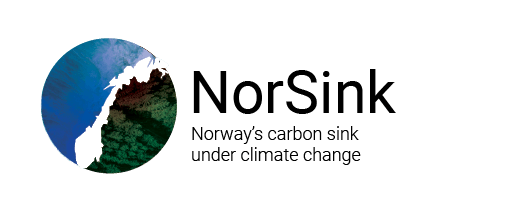NorSink - Norway’s carbon sink under climate change
How is carbon dioxide uptake changing in Norway and how may it be affected by climate change? NorSink will provide the most comprehensive assessment of Norway’s carbon budget to date, to understand drivers of recent change and model the potential future impact of climate change.
Photo: vvvita
Project details
About the project
Norwegian forests and land areas absorb large amounts of carbon dioxide every year. This ecosystem service helps limit the amount of global warming and is a vital element of climate policy in Norway and Europe. But this carbon uptake has unexpectedly declined about 40% in the last decade. While increased harvest and aging forests partly explain the decline, a significant portion is attributed to rising natural mortality due to factors like severe weather and bark beetles. Changes in soil carbon and the carbon lost through the aquatic continuum is not well quantified. Similar declines in carbon uptake are observed across Europe. Despite this, estimates of Norwegian carbon uptake remain poorly constrained, particularly in a future with evolving climate impacts.

With this starting point, NorSink will provide the most comprehensive assessment of Norway's carbon budget to date, both to understand drivers of recent change and to model the potential future impact of climate change. To achieve this, it is necessary to unite leading Norwegian institutes working on terrestrial and aquatic ecosystems, evolve existing data and model infrastructures, and to unify and structure the Norwegian scientific community to operationalise a new generation of policy-relevant models and outputs. NorSink will equip decision makers with crucial insights to craft effective climate policies as Norway's carbon sink evolves dynamically under climate pressures.
NorSink brings together leading scientists from CICERO Center for International Climate Research, Norwegian Institute of Bioeconomy Research (NIBIO), The Norwegian Institute for Water Research (NIVA), University of Oslo, NILU, and the Norwegian University of Science and Technology (NTNU) in an interdisciplinary team to address the full scope of the Norwegian carbon budget and the prioritized knowledge gaps.
The project will provide significant advances in the science of country-level carbon budgets and provide decision-makers with the knowledge to design effective climate policies as Norwegian and European carbon sinks dynamically evolve under climate change.
Project participants
CICERO
Glen Peters
Kjetil Aas
Rosie Fisher
Robbie Andrew
Miriam Stackpole Dahl
NIBIO
Ryan Bright
Lise Dalsgaard
Rasmus Astrup
Morgane Merlin
Kobra Maleki
NIVA
Heleen de Wit
Leah Jackson-Blake
James Sample
Francois Clayer
Christian Lindemann
UiO
Terje Berntsen
Norbert Pirk
Kristoffer Aalstad
Yeliz Tilmaz
NILU
Helene Muri
NTNU
Anusha Sathyanadh

